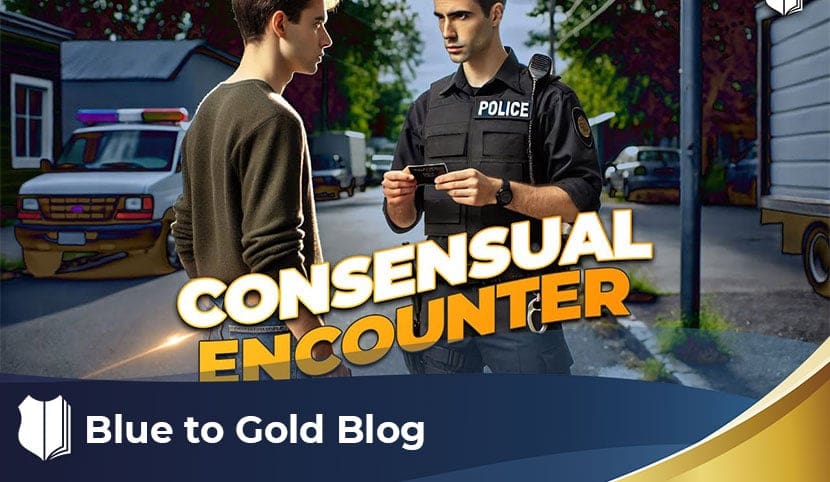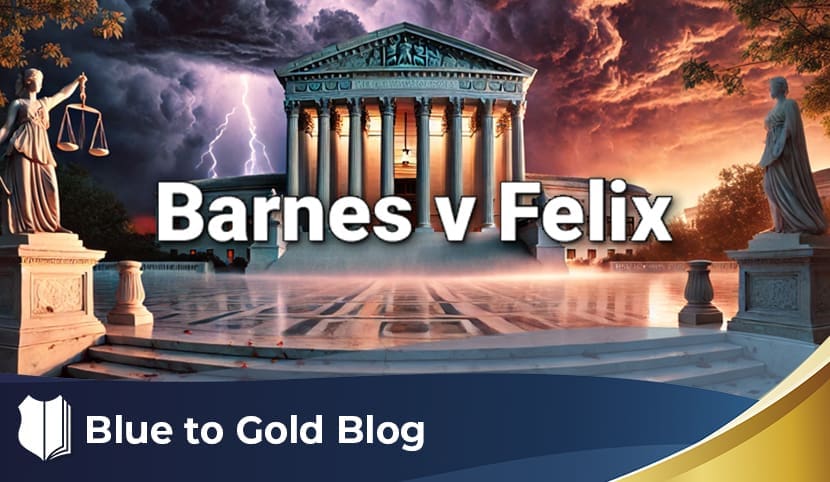Can You Demand ID During a Consensual Encounter?
This question comes from Trevor, who’s from Canada. Trevor says, “I’m not a law enforcement officer, but I’ve fallen down a rabbit hole and have been binge-watching your videos all week.” That’s awesome, Trevor—sounds like there’s not much going on in Canada, huh?
Trevor continues: “I’ve seen videos on YouTube where police demand ID during consensual encounters where no crime is occurring. The officers say they need it for their report, but when the person refuses, they threaten arrest for obstruction or failure to ID. From what I understand, department policy isn’t law. What’s the deal here?”
Let’s break this down.
The Basics: ID in a Consensual Encounter
If we’re talking about a truly consensual encounter, there is no obligation for anyone in any state to provide an ID to a police officer.
In the U.S., police officers cannot just walk up to a random citizen and demand ID without justification. For example, an officer can’t say, “Hey, I need to see your ID because it’s Monday.” That’s not how it works.
Laws requiring people to provide ID during police interactions are called “stop-and-identify statutes.” Not every state has them, but where they exist, they generally apply only during investigative detentions. During a lawful detention, a person may be required to provide sufficient identification if it’s relevant to the investigation.
Stop-and-Identify Statutes in Practice
Imagine an officer stops someone because they match the description of a shoplifter. The officer asks for ID, but within seconds, the store manager confirms, “That’s not the guy.”
At this point, the investigation is effectively over. If the person refuses to provide ID after being cleared, arresting them for failure to ID might not hold up in court. Why? Because the ID no longer serves any investigative purpose. The purpose of stop-and-identify statutes is to assist in investigating crimes, not to demand ID for its own sake.
That’s why officers need to be cautious. If the ID request doesn’t advance the investigation, it may not be legally justified, and any subsequent arrest could result in legal trouble for the officer.
Why Officers Use Consensual Encounters
Many officers prefer to start interactions as consensual rather than immediately detaining someone. Why? It often leads to better cooperation.
For example, instead of saying, “You’re being detained,” the officer might approach and say, “Hey, can I talk to you for a second? Were you just over at the Piggly Wiggly?” The person may cooperate more willingly in a consensual encounter.
But here’s the catch: if the officer actually has reasonable suspicion that the person was involved in a crime, the encounter isn’t truly consensual—even if it feels that way to the person being questioned.
If the officer then asks for ID, it’s likely tied to the investigation, and the courts may not have an issue with it. In those cases, the officer could detain the person and require ID under a stop-and-identify statute.
Documentation Policies
Trevor also mentioned officers saying they need ID for documentation purposes, like writing field contact reports. Some agencies require officers to document who they interact with, which isn’t inherently problematic.
For instance, if an officer stops a car for speeding, it’s common to ask passengers for ID and document who was in the vehicle. However, this doesn’t mean passengers are legally obligated to provide ID unless the officer has reasonable suspicion that they’re involved in a crime.
As Trevor correctly pointed out: policy is not law. If someone refuses to provide ID during a consensual encounter and now doesn’t feel free to leave, the situation has escalated into a detention. Without reasonable suspicion to justify that detention, it becomes unlawful—and the officer could face legal consequences.
Takeaways for Officers
- Consensual encounters don’t require ID unless reasonable suspicion exists.
- Be cautious about escalating an encounter without proper justification.
- Always articulate why ID is necessary if you demand it—especially during investigative detentions.
Closing Thoughts
Trevor, you’re absolutely right that department policy can’t override the law. Officers need to ensure they’re respecting people’s rights, especially during consensual encounters.
To my fellow officers: demanding ID without proper justification can lead to lawsuits and other issues, especially if it results in an unlawful detention. Citizens have rights, and we have a responsibility to uphold them.
Until next time, stay safe!








